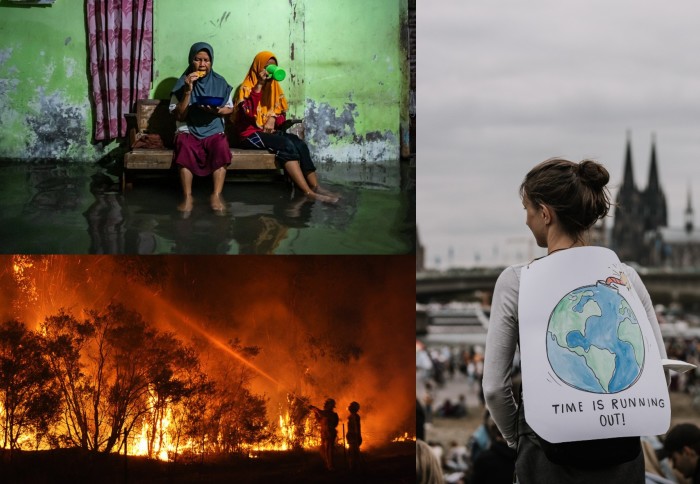What impact is the climate crisis having on our mental health?
by Jack Stewart

A new special issue of the International Review of Psychiatry gives a global perspective on the impact of the climate crisis on mental health.
The threat of climate change to human life, society and the planet has long been understood, with an increase in heat, flooding, pollution, food insecurity, disease, and extreme weather events. The toll this is taking on our mental health has received less attention.
The special issue, guest edited by Professor Mala Rao, includes commentaries, research and analyses that provide a global perspective on the relationship between mental health and the climate crisis. Mala was supported by a guest editorial team made up of Dr Neil Jennings, Grantham Institute - Climate Change and the Environment, Dr Emma Lawrance, the Institute of Global Health Innovation and Richard Powell, Department of Primary Care and Public Health at Imperial College London.
Authors from countries around the world including the Caribbean, South Africa, Bangladesh and the Philippines contributed to the issue which will be available free via Open Access for at least six months.
Mental health impact
There is a growing body of evidence showing that the impact of the climate crisis on mental health ranges from increased suicide rates and worse outcomes among those with diagnosed mental health disorders to a lower level of mental health and wellbeing among local populations.
The issue features a narrative review, led by Dr Emma Lawrance Mental Health Innovations Fellow at the Institute of Global Health Innovation at Imperial, offering the most comprehensive summary of the evidence base to date. It brings together relevant research from a wide range of disciplines and shows that climate change is a risk multiplier in disrupting the conditions that support good mental health and wellbeing. It can also compound existing vulnerabilities to poor mental health. The evidence also demonstrates the power of climate action as an opportunity multiplier with multiple co-benefits for mental health and wellbeing.
One paper, led by James Diffey – a young lived experience researcher based within Imperial’s Climate Cares team – co-wrote a paper with other young people (16-29) from 15 countries, in a rare opportunity for young people to have their voice heard directly as authors rather than research participants. It revealed that this group often find themselves coping alone with feelings of unimportance, anger and distress at the indifference and lack of urgency with which older generations and those in power treat climate change.
Experiences from a number of regions across the world, including Bangladesh, the Philippines and the Caribbean, demonstrate how extreme climate events are linked with an increased burden of post-traumatic stress disorder (PTSD), depression, anxiety, stress and suicide in people of all ages.
Professor Mala Rao, Senior Clinical Fellow in the School of Public Health said: “This collection of work by authors and global experts drawn from a uniquely broad range of backgrounds paints a stark picture of the mental health challenges that society is already facing in relation to the climate crisis, which will only get worse.
“Against that background, we also wanted to provide hope and optimism for the future by highlighting examples of innovation based on increasing awareness of the therapeutic benefits of nature restoration and contributing to climate action on mental health and emotional wellbeing.
“The issue is a call to action to everyone concerned about the climate crisis to join forces with mental health professionals and help shape the more compassionate future our young people are asking for”.
Hope for the future
The special issue highlights the role of mental health professionals in tackling the climate crisis, through advocacy, training and support as well as providing examples of strategies to address the mental health impacts.
In one example, a new model of training in the Philippines has been able to provide communities devastated by climate disasters with access to appropriately contextualised mental health knowledge and care. A team from Bangladesh demonstrates how the country has utilised its role as President of the Climate Vulnerable Forum to prioritise mental health and build resilience among its population.
The International Review of Psychiatry: The Climate Crisis and Mental Health is available on the International Review of Psychiatry website. It will be available on open access for six months.
Article text (excluding photos or graphics) © Imperial College London.
Photos and graphics subject to third party copyright used with permission or © Imperial College London.
Reporter
Jack Stewart
School of Public Health